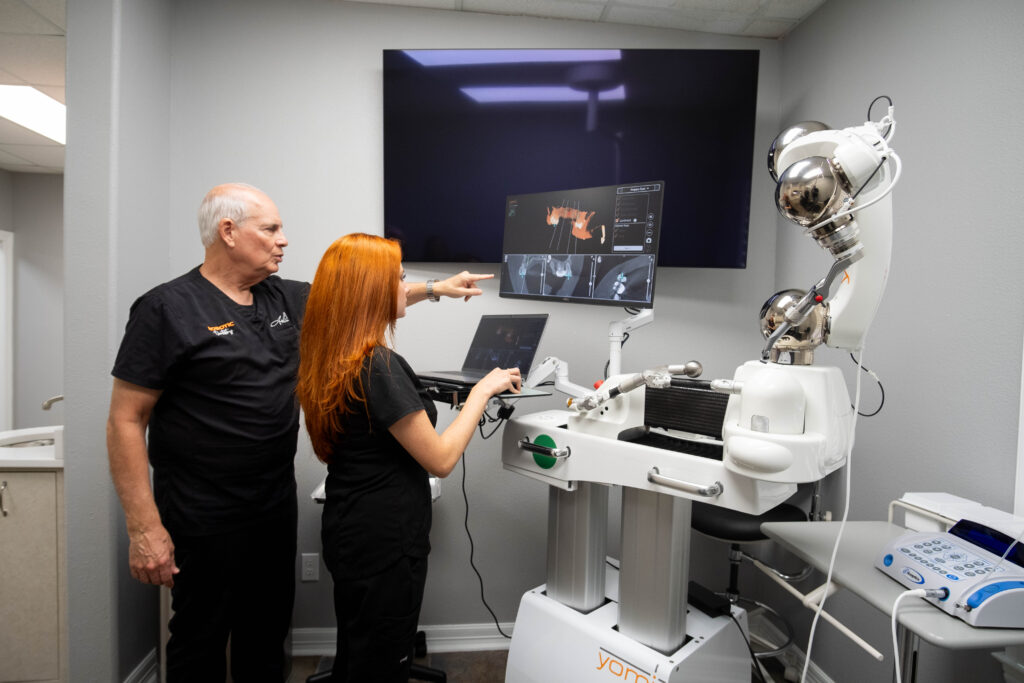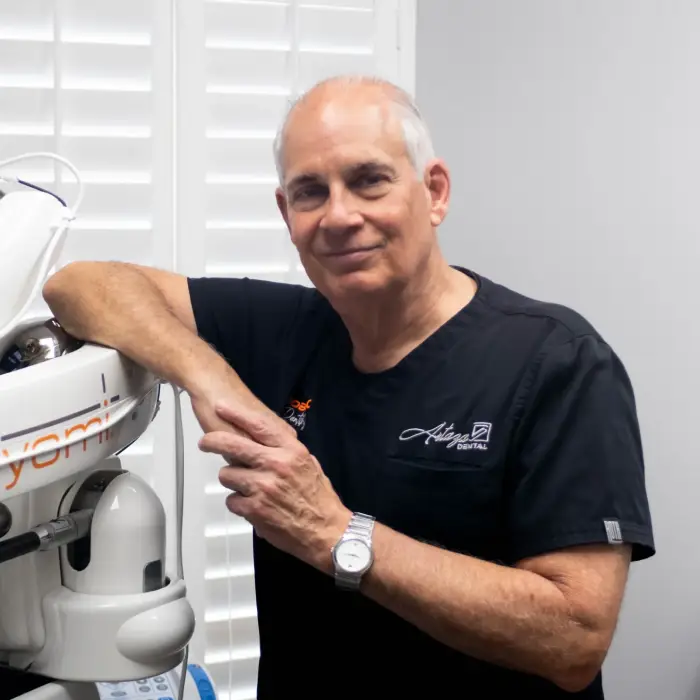Dental implants have revolutionized the field of dentistry, offering a durable and aesthetically pleasing solution for missing teeth. However, like any medical procedure, dental implants can sometimes lead to dental emergencies that require immediate attention.
In this blog, Dr. Hugo Artaza discusses the most common dental implant emergencies and how to handle them effectively. This knowledge can empower you to seek timely emergency dental services and maintain your oral health.
What Constitutes a Dental Implant Emergency?
Although dental implant complications are few and far between, it’s important to know what to look out for after surgery:
1. Severe Pain or Discomfort
Discomfort is a common symptom after dental implant surgery, but it should gradually decrease as you heal. If you experience severe or persistent pain that doesn’t subside with over-the-counter pain medication, it might indicate an underlying issue such as an infection or nerve damage. In such cases, seeking emergency dental care is essential.
2. Infection at the Implant Site
An infection can occur at the implant site if bacteria enter the surgical area. Symptoms may include redness, swelling, pus discharge, and fever. If left untreated, the infection can spread, leading to implant failure or other serious health issues. Prompt intervention by an emergency dentist can help manage the infection effectively.
3. Loose Implant
A dental implant should feel secure in your mouth. If you notice any movement or loosening, it could be a sign of implant failure or bone loss around the implant. This situation requires immediate dental attention to assess the cause and determine the appropriate course of action.
4. Excessive Bleeding
Bleeding is expected after implant surgery, but it should not be excessive or prolonged. If you experience continuous bleeding that doesn’t improve with gentle pressure, it could indicate a problem with the surgical site. Contact an emergency dental service to evaluate the situation and prevent further complications.
5. Nerve or Tissue Damage
During implant placement, there is a risk of damaging surrounding nerves or tissues. Symptoms of nerve damage include persistent numbness, tingling, or a burning sensation in the lips, tongue, or cheeks. Immediate dental care is necessary to address these symptoms and prevent long-term damage.
Practical Advice for Preventing Dental Implant Emergencies
While some emergencies are unavoidable, there are steps you can take to minimize the risk of complications:
Maintain Proper Oral Hygiene
Proper oral hygiene is crucial to preventing infections and ensuring the longevity of your dental implants. Brush and floss regularly, and use an antibacterial mouthwash to reduce the risk of bacteria buildup.
Attend Regular Check-Ups
Regular dental check-ups are vital for monitoring the health of your dental implants and catching potential issues early. Your dentist can professionally clean and assess the condition of your dental implants during these visits.
Follow Post-Surgery Instructions
After receiving a dental implant, your dentist will provide specific post-surgery care instructions. Following these guidelines can significantly reduce the risk of complications and support a smooth recovery process.
Avoid Hard Foods
Chewing hard foods can put excessive pressure on your dental implants, leading to potential damage or loosening. Stick to softer foods, especially in the initial healing phase, to protect your restorations.
When to Seek Emergency Dental Care
Recognizing the signs of a dental implant emergency is crucial for seeking timely care. If you experience severe pain, swelling, bleeding, or any other concerning symptoms, do not hesitate to call our emergency dentist in Katy, TX. Early intervention can make a significant difference in preserving your oral health and preventing further complications.





